Invited Speakers for 2025 World Conference
Invited Speakers for 2025 World Conference2025 Plenary Speakers

Lisa Feldman Barrett, Ph.D.
Lisa Feldman Barrett, Ph.D., is a University Distinguished Professor of psychology at Northeastern University with research appointments in the departments of psychiatry and radiology at the Massachusetts General Hospital (MGH). For the seven several years, Dr. Barrett has been among the top 1% most-cited scientists worldwide for her research in psychology and neuroscience, having published over 280 peer-reviewed scientific papers that have been cited more than 100K times. She has received numerous awards, including a Director’s Pioneer Award for transformative research from the US National Institutes of Health, a Guggenheim Fellowship in neuroscience, Mentor Awards from the Association for Psychological Science (APS) and the Society for Affect Science (SAS), the Distinguished Scientific Contribution Award from the American Psychological Association (APA) and the William James Fellow Award for lifetime scientific contributions from the Association for Psychological Science (APS). Dr. Barrett is an elected fellow of the American Academy of Arts and Sciences, the Royal Society of Canada, and a number of other honorific societies. She has testified before the US Congress, is the Chief Science Officer for the Center for Law, Brain and Behavior at MGH, has served as president of the Association for Psychological Science, co-founded the Society for Affective Science, and actively engages in informal science education for the public via popular books, articles and public lectures. She has authored two best-selling popular science books, How Emotions are Made: The Secret Life of the Brain and Seven and a Half Lessons About the Brain. Her TED talk has been viewed more than 7 million times to date. Colleagues have called Dr. Barrett “the William James of our time” and “the deepest thinker on since Darwin.”
Dr. Barrett will be giving the following presentation: Three Lessons About the Brain
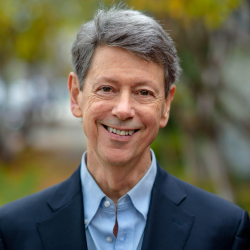
Rick Hanson, Ph.D.
Rick Hanson, Ph.D., is a psychologist, Senior Fellow at UC Berkeley’s Greater Good Science Center, and New York Times best-selling author. His seven books have been published in 33 languages and include Making Great Relationships, Neurodharma, Resilient, Hardwiring Happiness, Just One Thing, Buddha’s Brain, and Mother Nurture - with over a million copies in English alone. He's the founder of the Global Compassion Coalition and the Wellspring Institute for Neuroscience and Contemplative Wisdom, as well as the co-host of the Being Well podcast – which has been downloaded over 16 million times. His free newsletters have 260,000 subscribers, and his online programs have scholarships available for those with financial needs. He’s lectured at NASA, Google, Oxford, and Harvard. An expert on positive neuroplasticity, his work has been featured on CBS, NPR, the BBC, and other major media. He began meditating in 1974 and has taught in meditation centers worldwide. He and his wife live in northern California and have two adult children. He loves the wilderness and taking a break from emails.
Dr. Hanson will be giving the following presentation: Growth 2.0: Agency, Individuality, and Positive Neuroplasticity in Developing Durable Psychological Resources
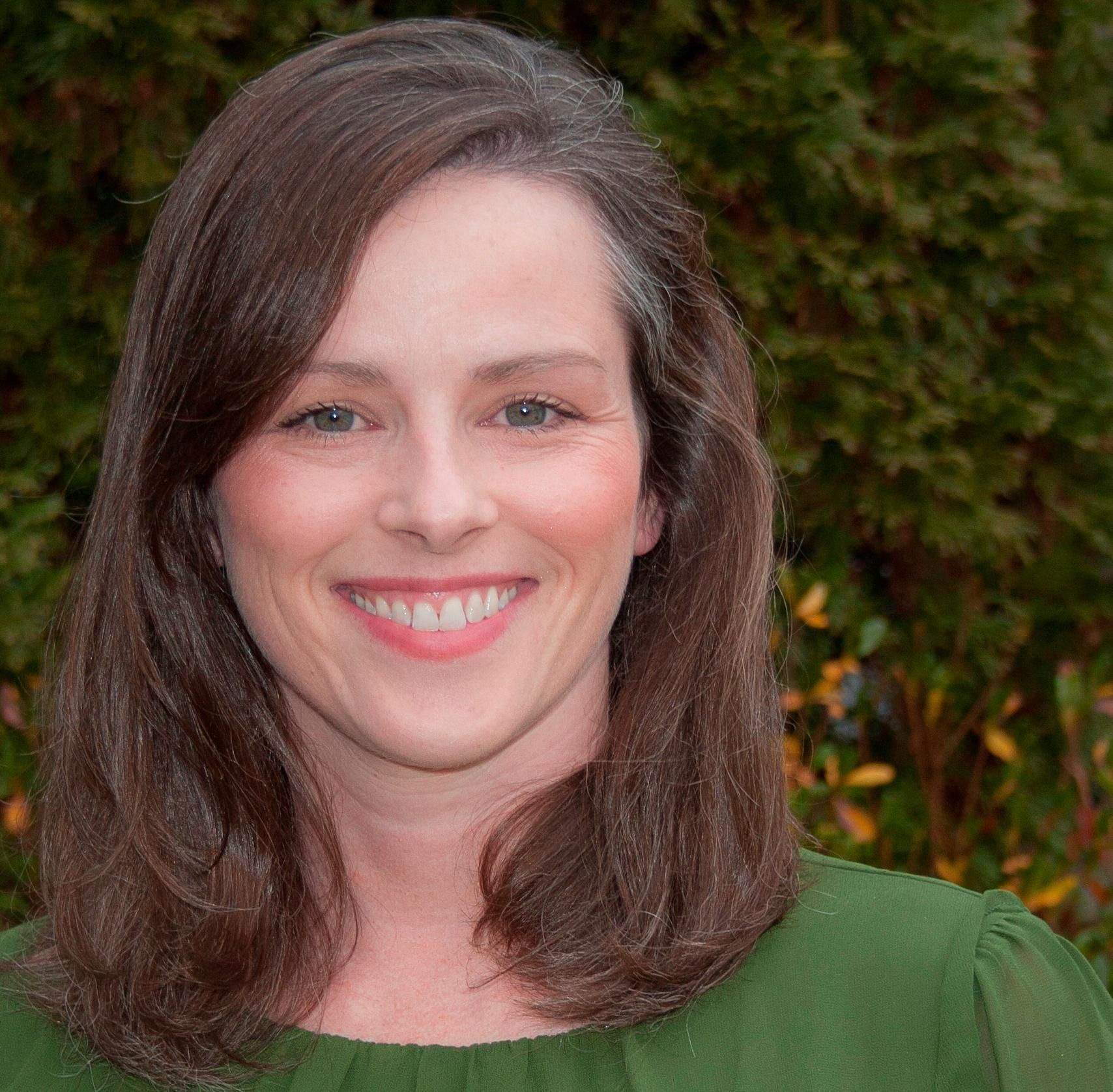
Rhonda M. Merwin, Ph.D.
Rhonda M. Merwin, Ph.D., is an Associate Professor at Duke University School of Medicine in the Department of Psychiatry and Behavioral Sciences. Dr. Merwin has expertise in eating disorders, Acceptance and Commitment Therapy (ACT), and psychological concerns in persons with type 1 diabetes (T1D). She has received over 5 million dollars in research grant funding as a principal investigator with awards from the National Institutes of Health (NIH) and Breakthrough T1D (formerly JDRF) and is a co-investigator on several other awards. Dr. Merwin has contributed to scientific advancements in multilevel factors contributing to the development and maintenance of anorexia nervosa and binge-purge behaviors in type 1 diabetes. Her treatment development work uses digital and mobile technology for momentary assessment and intervention. Dr. Merwin is a peer-reviewed ACT trainer, a Fellow, and the current President of ACBS.
Dr. Merwin will be giving the following presentation: Realizing the Potential of CBS to Alleviate Human Suffering
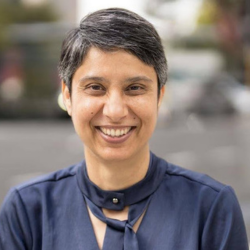
Baljinder Kaur Sahdra, Ph.D.
Associate Professor Baljinder Kaur Sahdra is a researcher at the Institute for Positive Psychology and Education at the Australian Catholic University, North Sydney, Australia. She also serves as the Editor-in-Chief of the Journal of Contextual Behavioral Science. She has made substantial scientific contributions in the areas of well-being, mindfulness, compassion, nonattachment, intensive meditation, discrimination and social identity, compulsive internet use, educational psychology, and personalizing psychology (see more here: https://bit.ly/BaljinderSahdraPhD). Her research articles are highly cited (7,000+ Google Scholar citations; 950+ media mentions). She has been awarded with several prestigious awards and competitive research grants ($7+ million). She is passionate about the role of idionomic methods, which integrate individual-level and group-level insights to advance data-driven personalized psychological care. Most relevant for this plenary talk, her recent research focuses on idionomic analyses of psychological processes of change, such as, compassion, valued-action, mindfulness, and psychological flexibility.
Dr. Sahdra will be giving the following presentation: The Idionomics Revolution: Rethinking Evidence in Evidence-Based Psychological Care
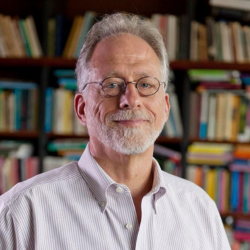
Michael Tomasello, Ph.D.
Michael Tomasello, Ph.D. is a professor of psychology and neuroscience at Duke University, has applied a comparative and developmental approach toward seeking answers. His studies on the psychological processes of social cognition, social learning, cooperation, and communication shed light on human uniqueness as well as on the cognitive abilities of our closest ape relatives. Tomasello, who is emeritus director of the Max Planck Institute for Evolutionary Anthropology, was elected to the National Academy of Sciences in 2017.
Dr. Tomasello will be giving the following presentation: Origins of Human Cooperation
2025 Invited Speakers
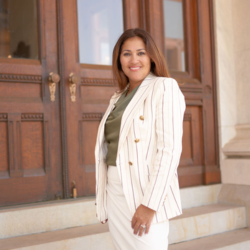
Maysa Akbar, Ph.D., ABPP
Maysa Akbar, Ph.D., ABPP, is a respected scientist-practitioner and APA’s chief diversity officer (CDO) and chief of psychology in the public interest, charged with infusing equity, diversity, and inclusion (EDI) into the fabric of the association’s work. Before assuming the CDO post, Akbar was the founder and chief executive officer of a clinical practice based in New Haven, Connecticut, that specialized in race-based trauma. She also created a consulting firm and educational network focused on organizational cultural transformation. Her firm delivered cutting-edge programs anchored in EDI to city governments, public schools, and court systems, among other entities.
Akbar’s areas of specialty include racial identity development, racism, urban trauma, and allyship, topics on which she has written research articles, books, and book chapters. Akbar is an experienced instructor and master trainer in EDI for both the medical and the broader community. Akbar held a faculty appointment from 2004–21 at the Yale School of Medicine Child Study Center as an assistant clinical professor with multiple roles, including conducting research, teaching, and serving as an administrator and supervisor. Akbar also completed her pre- and postdoctoral training at the Yale Child Study Center with a specialty track in early childhood development. She is certified in child and adolescent psychology by the American Board of Professional Psychology.
Dr. Akbar will be giving the following presentation: Psychology’s Roadmap to Organizational Cultural Transformation
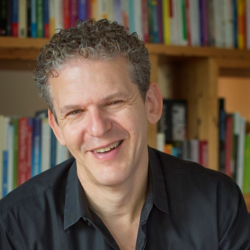
Russ Harris, M.B.B.S.
Dr Russ Harris, M.B.B.S., is a physician and psychotherapist, working in private practice in Melbourne, Australia. He graduated in medicine from the University of Newcastle-Upon-Tyne, England, in 1989, and emigrated to Australia in 1991. Working as a GP (family doctor), he became increasingly interested in the psychological aspects of health and wellbeing, and increasingly disenchanted with writing prescriptions. Ultimately this interest led to a career change – from medical practitioner to therapist.
Russ is a world-acclaimed ACT trainer and author. Since 2005, he has run over 800 two-day ACT workshops, and has provided ACT training in person or online for over 80,000 health professionals. He has authored four ACT textbooks (ACT Made Simple, Trauma Focused ACT, Getting Unstuck in ACT, ACT Questions & Answers), and six ACT-based self-help books. His best-known book, The Happiness Trap, has sold over one million copies worldwide, with translations into over 30 languages.
Dr. Harris will be giving the following presentation: Doing What Matters In TImes Of Stress: ACT and the World Health Organisation
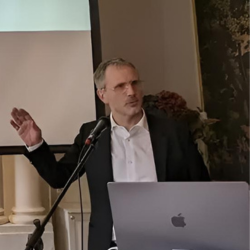
Robert Johansson, Ph.D.
Robert Johansson is an interdisciplinary researcher with dual PhDs: one in clinical psychology (2013) and another in computer science (2024), specializing in the development of adaptive AI systems informed by learning psychology. His pioneering work in Machine Psychology integrates principles from learning psychology with the Non-Axiomatic Reasoning System (NARS) to create AI systems capable of human-like relational reasoning.
Currently an Associate Professor of Clinical Psychology at the Department of Psychology, Stockholm University, Sweden, Robert has extensive experience in emotion-focused therapies and in developing innovative psychological treatments, particularly through guided self-help delivered via the Internet. His interdisciplinary expertise allows him to bridge the gap between psychological science and artificial intelligence, contributing to the development of ethically adaptive AI systems that align with human values.
Dr. Johansson will be giving the following presentation: Machine Psychology: A contextual behavioral approach to Artificial General Intelligence

Alison Kitson, Ph.D.
Alison Kitson Ph.D., is an internationally recognised translational research scientist and nursing leader. She is best known for her work on developing, testing and refining the integrated Promoting Action on Research Implementation Framework (or i-PARIHS Framework), an implementation framework that has been widely and successfully used to enable research evidence to be put into everyday practice. She has published over 300 peer reviewed articles and book chapters in top nursing and translational science journals and is ranked in the top 2% of most cited researchers in her field.
Dr Kitson has served as Vice President and Executive Dean of the College of Nursing and Health Sciences at Flinders University South Australia from 2017-2024. In 2015 she was elected a Fellow of the Australian Academy of Health and Medical Science and in 2022 she was awarded a Distinguished Matthew Flinders Professorship from Flinders University. She has several visiting professorships and two honorary doctorates. Dr Kitson’s other passion is around strengthening the evidence base for person-centred fundamental care. Care and particularly person-centred fundamental care is something we all need to keep us healthy and well and yet it is poorly defined, understood or researched. She has established an organisation called the International Learning Collaborative (ilccare.org) to fill this gap.
Dr. Kitson will be giving the following presentation: Promoting the uptake of contextual behavioural interventions: observations from a knowledge translation scientist

Jennifer Shepard Payne, Ph.D., LCSW
Jennifer Shepard Payne, is a Research Scientist and Clinician at the Kennedy Krieger Institute in the Center for Child and Family Traumatic Stress (CCFTS) and the Center for the Neuroscience of Social Injustice. She is also an assistant professor at the Johns Hopkins University School of Medicine, with a primary appointment in the Department of Psychiatry, Division of Child and Adolescent Psychiatry.
She received her doctorate in Social Welfare from UCLA and is a Licensed Clinical Social Worker with many years of experience in mental health clinical practice. For several years, Dr. Payne has been working on culturally tailoring Acceptance and Commitment Therapy (ACT) for African American communities experiencing racial and systemic trauma. She developed a culturally-tailored ACT intervention called POOF™ and trains and consults on the model: www.POOF-PullingOutOfFire.com. Her book, Out Of The Fire, is a love note for Blacks and others suffering from the paralyzing effects of systemic racism.
Dr. Shepard Payne will be giving the following presentation: Targeting Racial and Systemic Oppression: On Tailoring ACT for Black Trauma